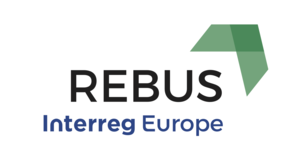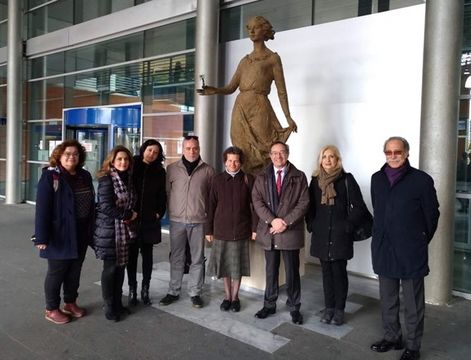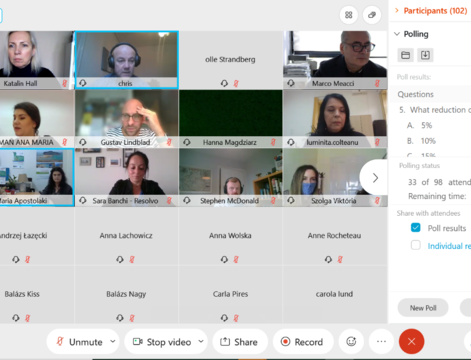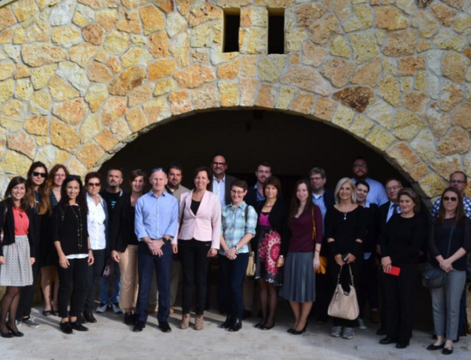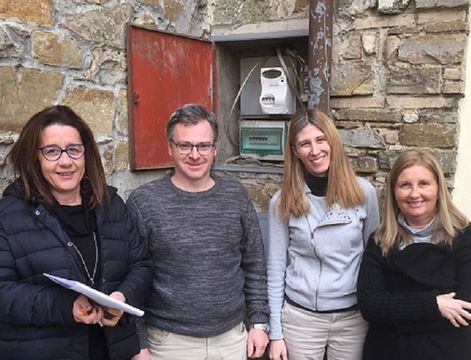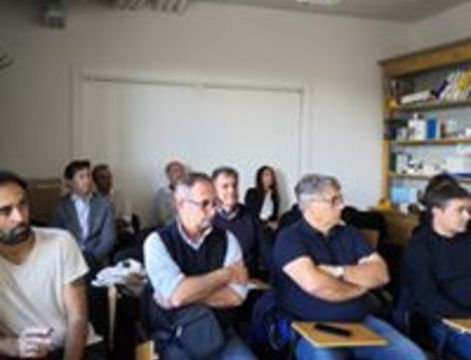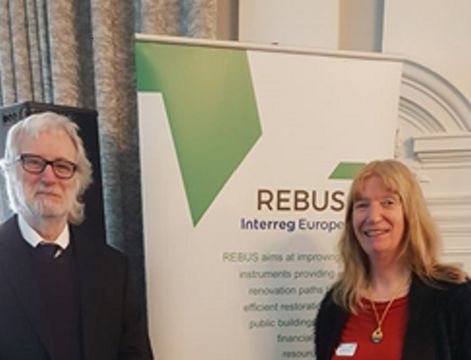Approximately 30 participants participated in the South-East Regional Development Agency (SERDA) REBUS Dissemination Event this spring, including representatives of Buzau City Hall (i.e. Energy Manager, personnel directly involved in development/implementation/monitoring of energy efficiency projects for public buildings), managers and supporting staff of schools, energy auditors, architects, director of the local public transportation company, and so on.

The event was held on 24th of April 2019 in Buzau City and was organised with the support of SE RDA’s major stakeholder – Buzau City Hall. The aim of the event was to disseminate the Interreg Europe REBUS project results after the first phase of project implementation. Therefore, the discussions were concentrated on the REBUS Energy Renovation Path (ERP), the proposed changes on policy instrument in the framework of Romania’s South-East Region Action Plan and, finally, the lessons learnt during the exchange of good practices on energy renovation in public buildings.

Within the discussion surrounding the REBUS Energy Renovation Path, relevant experiences of project partners in terms of planning, implementation, monitoring and capacity building were presented by underlining the main steps to be carried out in each stage of energy renovation/project implementation—as well as the actions to be done and the ones that should pay more attention to their achievement.
As participants of the REBUS Dissemination Event were the main beneficiaries of Regional Operational Programme, they were interested to hear all about the actions proposed to facilitate access to funds and increase the number of renovated buildings in their city. Also presented were the main aspects of the monitoring phase of the SERDA Action Plan in terms of players involved and tools to be used for reporting the results.
Relevant experiences in terms of good practices were shared by the representatives of Buzau City Hall and Local Public Transport Company, as they had the opportunity to participate in REBUS project interregional events, study visits and staff exchanges. Interactive discussions were held on capacity building measures implemented by the REBUS project partners and potential actions to be undertaken especially by schools and city halls for improved raising awareness for energy efficiency among pupils and public servants.
Moreover, a case study for applying EnerPHit principles – the Passive House Certificate for retrofits – to collective buildings was presented. Within the case study, remodeling and retrofitting existing buildings were considered for a block of apartments located in a small town in Romania, in order for them to become significantly more energy efficient. The case study started from the existing situation of the building and estimated the results in terms of energy consumption, quality of living, architectural and aesthetic aspects when applying the five principles of the Passive House: thermal insulation, Passive House windows, adequate ventilation strategy, airtightness and thermal bridge reduced design.
The proposed solutions for renovation emphasised important results concerning:
- Energy performance
- Energy consumption, space heating (kWh/m2) 17,4 kWh/m2 (reduced from 195,5 kWh/m2)
- Energy consumption, domestic hot water (kWh/m2) 21,02 kWh/m2 (reduced from 45,31 kWh/m2)
- Energy consumption, other (kWh/m2) 4,32 kWh/m2 (reduced from 6,67 kWh/m2)
- Building envelope
- High energy performance of the building
- Balconies with independent structures
- An additional level of the building (extra space for living)
- Changes of the ventilation system
- Installation of a ventilation system with heat recovery for each apartment
- Technologies for renewable energy
- Installation of photovoltaic panels and solar panels for domestic water heating
The case study can be implemented using Structural Funds, ESCO companies, collaborations with construction companies interested to invest or real investors.

